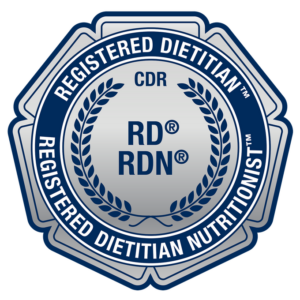Vitamin C is a water-soluble essential vitamin that your body needs. It and functions as an antioxidant that supports the immune system by stimulating the formation of antibodies. It is necessary for the production of collagen, which is the support system for your bones, skin, and gums. This vitamin plays an important role in the healing of wounds, and after surgery. It plays a special role in your skin to reduce sun damage, reduce wrinkles, and improve overall skin texture. Vitamin C also enhances the absorption of iron from plant and supplement forms. This is important for vegetarians or iron deficiency anemia.
This supplement is commonly called ascorbic acid, L- ascorbic acid, calcium ascorbate, sodium ascorbate, ascorbyl palmitate. These forms are commonly found in supplements and skincare.
Vitamin C is found in fruits and vegetables. Note many of higher sources are cooked. Use caution not to overcook as it will reduce the Vitamin C content. It is best to microwave or steam these rich foods to reduce loss.
- Bell Peppers (230mg per cup)
- Broccoli (74mg per cup, cooked)
- Brussel Sprouts (71mg per cup, cooked)
- Grapefruit (80mg per cup)
- Kale (69mg per cup, cooked)
- Kiwi (167mg per cup)
- Mangoes (60 mg per cup)
- Oranges (90mg per cup)
- Orange Juice (80mg per cup)
- Papaya (88mg per cup)
- Pineapple (78mg per cup)
- Strawberries (89mg per cup)
- Sweet Potatoes (42mg per cup cooked/mashed)
- Tomatoes (54mg per cup, cooked)
- Tomato juice (170mg per cup)
Recommended daily intake (DRI)

Vitamin C and the common cold and COVID-19
Although vitamin C has long been a popular remedy for the common cold, research shows that for most people, these supplements do not reduce the risk of getting the common cold. However, people who take vitamin C supplements regularly during the cold season might have slightly shorter colds or somewhat milder symptoms when they do have a cold. The recommended dose is 1000mg daily, in 500mg twice a day. Using supplements after cold symptoms start does not appear to be helpful.
Vitamin C Concerns that you should be aware of:
First of all, from a deficiency perspective too little of this vitamin in your diet has some major potential effects on your overall health and well being. the main things to be concerned about include:
- Scurvy (below about 10 mg per day) for many weeks. Scurvy causes fatigue, inflammation of the gums, small red or purple spots (petechiae) on the skin
- Poor wound healing
- Corkscrew hairs
And if you take too much of this essential vitamin here are the risks, which are rare but you should look out for them especaily if you are increasing your intake during old and flue season
- Nausea,
- Diarrhea
- stomach cramps
Upper tolerable intake limits are for a total intake from food, liquid, and supplements

Nourish and Thrive!
Food can create a joyous experience and bring back fond memories, but I know that for some, eating can bring up feelings of negativity, guilt, and frustration. Nourish2Thrive was created for those looking to have a healthier relationship with real food guided by someone who has been there. I want to help you find relief from food battles by teaching you about fueling your body to live the life you’ve always dreamed of. Don’t you want to feel better and thrive? Contact me today for a free consultation!


